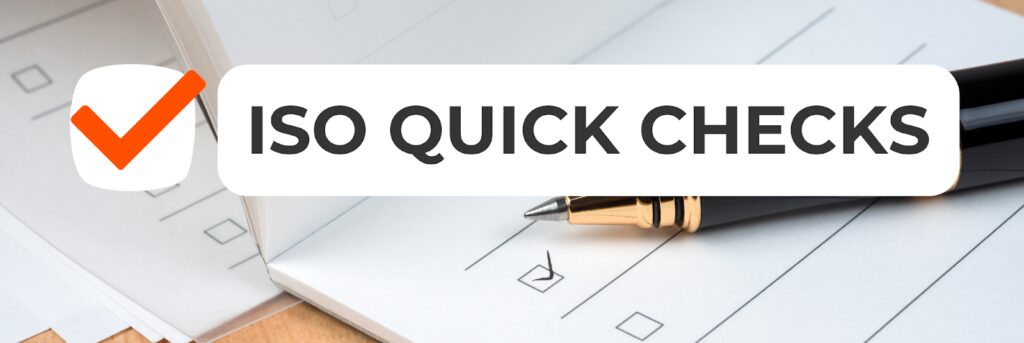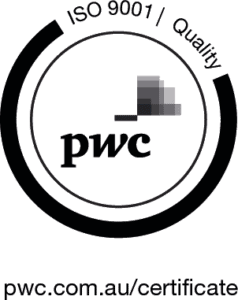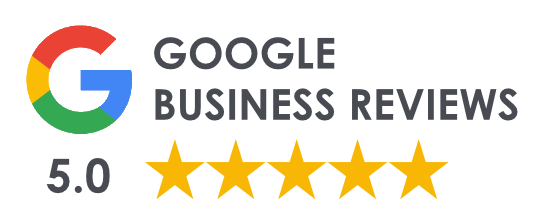How to Achieve ISO Certification: A Comprehensive Guide
In the dynamic landscape of today’s business environment, organisations worldwide are increasingly recognising the significance of achieving Certification to ISO Standards, informally referred to as ISO Certification.
Whether it’s to enhance credibility, meet regulatory requirements, or foster a culture of continual improvement, the journey towards ISO Certification is a pivotal step for any forward-thinking business.
Our Comprehensive Guide On How To Get ISO Certification
This article aims to demystify the certification process, providing you with a roadmap to navigate through the intricacies and complexities. You’ll learn:
First, let’s explore the four most common ISO Management System Standards you may choose to achieve Certification in.
Types of ISO Management System Standards
There are more than 21,000 ISO Standards available, each of them addressing different aspects or challenges that affect organisations. Some of the most popular and recognised Management System Standards are: ISO 9001:2015 for Quality, ISO 45001:2018 for Health and Safety, ISO 14001:2015 for Environmental, and ISO 27001:2022 for Information Security Management.
Let’s briefly have a look at each of these standards:
It looks like a lot of information, but don’t worry, we’re here to help. Consultancy experts like us are qualified and experienced in helping businesses develop their Management Systems and get ready for Certification. Chat with our ISO Certification Experts via email or on 1300 614 007, and we will find the best approach for your needs.
How to achieve ISO Certification in 5 steps
We can break down the process of achieving ISO Certification into 5 steps:
Let’s go into a bit more detail as to what’s involved in each step.
Step 1: Planning
Identifying which ISO Standard(s) you’re going for, and understanding the requirements of your chosen Standard(s) is crucial. Planning may also involve conducting a Gap Analysis to understand the organisation’s current status against the standards requirements, if not starting from scratch. A plan is then developed to address these gaps and establish a roadmap for the Certification Process.
What’s a Gap Analysis?
Wondering if you need a Gap Analysis for ISO Certification Readiness? Read more here.
Step 2: Documentation Development
During this stage, a Management System for your chosen Standard(s) needs to be developed by creating the necessary documentation, including business planning documentation, policies, processes, procedures, work instructions and supporting templates for record keeping. This is where the expertise in understanding and applying the Standards requirements to fit your business comes into play, and expert consultants help you save money and time by tackling this strategically.
Step 3: Implementation
The Management System is put into practice across the organisation, and employees should be guided to understand the newly developed documentation, as well as their roles and responsibilities. Conducting an Internal Audit and a Management Review are also requirements, to ensure that processes are implemented, followed, and executed accordingly, and your chosen ISO Standards requirements have been successfully met in preparation for the external audits.
Step 4: External (Certification) Audits
This is the last step to achieve Certification. At this step, you need to engage a Certification Body (aka Conformity Assessment Body). They are the accredited organisation that will conduct the Certification (External) Audits to assess your organisation’s Management System against your chosen ISO Standards requirements. Auditors will evaluate the management system’s effectiveness, its ability to deliver consistent results to meet your customer requirements, and its conformance with the standard(s). Upon successful completion of the External Audits, your organisation will receive your ISO Certification.
Expert Tip
No organisation can provide Consulting and Certification services. It’s a conflict of interest for a Certification Body to also be involved in the development and implementation of the systems being audited.
Be aware when organisations offer both the Consulting Services and the Certification Services (to both help you develop and certify your Management Systems) as a single service or in a package – this is the first sign of unethical activities that may put your future Certification(s) at risk!
Find out how to select the right Certification Body for your business here.
Step 5: Continual Improvement
Once Certification is achieved, it’s valid for 3 years, and your Certification Body will return to conduct annual surveillance audits to ensure your business maintains its commitment to the standard(s). Ongoing activities are required to be regularly conducted by your organisation, ensuring your Management System still meets the requirements of your chosen standard(s), and evidence of these will be checked by your Certification Body auditor.
We can also assist you with ongoing support. If you want to learn more about the ongoing activities required to maintain your Management System, you can find out more here.
Common Challenges and Solutions for ISO Certification
Embarking on the journey towards ISO Certification is a commendable endeavour, but it’s not without its share of challenges. Recognising and addressing these hurdles head-on is essential for a smooth and successful certification process.
In this section, we’ll explore some common challenges faced by organisations and offer practical solutions to overcome them.
Lack of leadership support:
Challenge: Without top-level commitment, the implementation of a Management System may be perceived as a secondary initiative. This hinders the integration of the chosen ISO Standards requirements into the organisation, and may not fully reflect the business objectives and processes, as well as delaying Certification.
Solution: Actively seek to cultivate leadership buy-in and support by involving leaders early in the process, educating them on the importance of Certification and the process, as well as communicating the long-term vision.
Resistance to Change:
Challenge: Implementing ISO Management System Standards often requires a shift in organisational culture and practices, which may face resistance from employees accustomed to existing processes.
Solution: Foster open communication, provide comprehensive training, and involve employees in the development and implementation process to ease the transition.
Resource Constraints:
Challenge: Limited budget, time, or manpower can pose significant hurdles during the Certification process.
Solution: Prioritise tasks, allocate resources strategically, and explore cost-effective solutions. Many businesses choose to engage an expert ISO Consultant to assist them throughout the Certification process, which allows for an unbiased opinion, less disruption to “business as usual”, and will bring expert knowledge and expertise about the standards you’re working towards.
Management of Documentation:
Challenge: Creating and maintaining the required documentation can be demanding, especially for smaller organisations with fewer resources.
Solution: Develop a clear and concise documentation strategy. Leverage automation tools to streamline the documentation process, making it more manageable.
Lack of Awareness:
Challenge: Employees may not fully understand the importance of ISO Standards and their role in the Certification Process.
Solution: Conduct awareness programs, training sessions, and workshops to educate employees about the benefits of ISO Certification and their contribution to the organisation’s success.
Sustaining Continual Improvement:
Challenge: Maintaining a culture of continual improvement may prove challenging because organisations may face complacency or a loss of momentum after achieving the initial certification.
Solution: Establish robust monitoring and measurement systems. Encourage feedback and regularly assess performance to identify areas for ongoing improvement.
Need help with Certification Readiness? At ISO Certification Experts, we are specialists in assisting organisations to achieve ISO Certification. Our team of management consultants are experts in developing management systems efficiently and are passionate about helping businesses improve and achieve their certifications.
Book your online FREE Strategy Session with us now! We’ll help you understand all the steps of the process and discuss the specific needs of your organisation. You can also contact us on 1300 614 007 or via email with any questions.
About the author
Erica is the Managing Director of ISO Certification Experts and ICExperts Academy. She has been helping businesses with their ISO Certification needs for over 20 years. Erica is also a Certified trainer, implementer and auditor for the ISO 9001, ISO 14001, ISO 45001 and ISO 27001 standards. Erica primarily heads up the day-to-day operations of the businesses, and is also a current member of the Standards Australia Committees: QR-008 Quality Systems and ISO 9001 Quality Management Brand Integrity.
All information on this blog site is for informational purposes only. As this information is based on our professional experience, opinion, and knowledge, we make no representations as to the suitability of this information for your individual business circumstances. Especiality Pty Ltd trading as ISO Certification Experts and all related businesses and brands will not be liable for any errors, omissions, legal disputes or any damage arising from its display or use. All information is provided as is, with no warranties and confers no rights.
We will not be responsible for any material that is found at the end of links that we may post on this blog site. The advice, ideas, and strategies should never be used without first assessing your own personal business situation or seeking professional and/or legal advice. Information may also change from time to time to suit industry and business needs, requirements and trends.




















